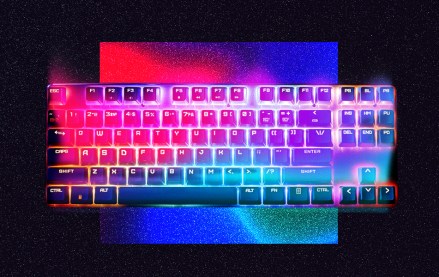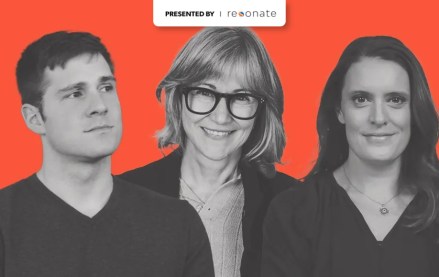Facing 35 percent ad-block rates, Future decided to drastically cut ad impressions

For Future, publisher of TechRadar and GamesRadar, ad blocking isn’t a casual topic: Almost half of all GamesRadar desktop site visitors have ad blockers enabled and 35 percent do across all its tech titles.
So while the recent chatter around ad blocking has turned to get-tough policies that say take-it-or-leave-it to ad-blocking users, Future is going an opposite direction: It took the message from ad blocking to heart and has instead decluttered its site to the tune of 50 million fewer ad impressions so far this year — with a goal of trimming 100 million by year end. It is not considering blocking content from ad-block software users.
“We’re fundamentally against a content block,” added Zack Sullivan, head of consumer operations at Future. “A lot of our readers are passionate about ad blocking, and have philosophical reasons for using them. They’ve made a conscious decision to do it. We’re more interested in seeing what added value we can give to them, and creating a better experience.”
To that end, it’s focusing on a mix of different strategies and diversifying revenue into areas like e-commerce. It has spent the last few years centralizing its tech infrastructure so all magazine brands run off the same platform. Next month, that will be more visible on the front end, because the sites will look more unified in design, but it’s also made it easier to cut out a lot of the third party ad tech, which has been dragging down site-load times over the years.
Just the move from Javascript to HTML5 was “hell” in terms of the creatives they were being given by agencies, said Sullivan. Rich-media ads were heavy and harmed both page-load speeds and viewability rates. Its new platform can cater for ads that cater to the IAB’s LEAN principles, which all Future ad formats will adopt in time, he added.
“When we did the initial audit of the site, we saw there were hundreds of ad tech things in there. We want to reduce that,” he said. In-image third-party ads — which match images on Websites to contextually relevant ads — were the first to go.
Although an average 22 percent of U.K. adults block ads online, according to IAB/YouGov figures, for publishers that specialize in tech and gaming coverage, the issue is far more serious. Future’s flagship titles Tech Radar and Games Radar are more vulnerable to ad blocking than lifestyle or generic news sites. In February, Future titles in the U.K. had 5.3 million unique visitors, and 13.7 million in the U.S., according to comScore.
Still, the concept of “fewer is better” when it comes to online ad buying isn’t always popular with agencies though, mainly because it constrains supply and therefore drives up prices.
“Constrained supply may increase the cost for the remaining ads to a point where they do not give a positive ROI for our advertisers, and, if this were the case, we would cease buying them to ensure we are delivering value for our advertisers’ campaigns,” said Steve Ballinger, chief media officer at Dentsu Aegis Network’s media investment arm Amplifi.
However, he added that he “provisionally” welcomed any publisher move to declutter sites and improve the environment for advertisers. “If reducing the number of impressions means our ads enjoy preferential placements, then we would hope to see an increase in viewability, engagement and overall a more pleasant experience for the audience,” he said.
Future is prepared for any short-term revenue losses the loss in ad inventory could bring. “We’re going to lose revenue in the short term, but it’s our ambition to achieve the same result of increasing yield and therefore revenue in the long run. We’re putting a greater focus on high-value bespoke ad solutions too like cross-platform creative solutions and video creation,” added Sullivan.
More in Media

Publishers test new TikTok feature that adds links to organic videos
Publishers are testing a TikTok feature that adds links to organic videos, and hoping it can help drive traffic to their sites.

Digiday+ Research: Publishers take their focus off events as revenue dips
The percentage of publishers making money from events hit a low as of the first quarter of this year and, as a result, fewer publishers plan on putting a focus on growing that part of their business.

What platforms, brands and agencies hope to get out of the Possible conference in year 2
Year two of Possible is once again being held in Miami Beach, and it will take place from April 15-17 with 3,000 attendees expected to listen to another 200 or so speakers, including Snap’s Colleen DeCourcy, Uber Ads’ Megan Ramm and UM Worldwide’s Matthew Smith.





